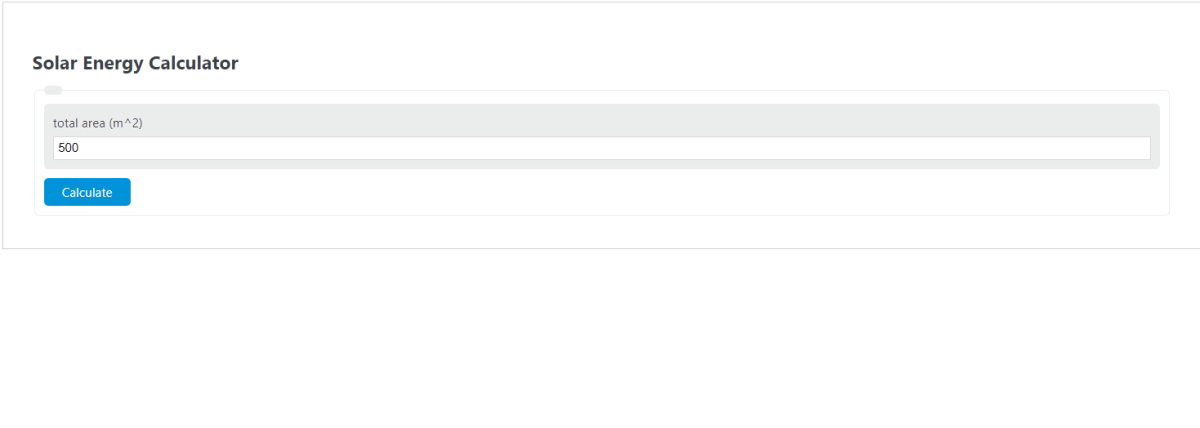Enter the total area into the calculator to determine the Solar Energy.
- All Energy Calculators
- Cost Per Solar Panel Calculator
- Solar Panel Efficiency Calculator
- Solar Power Density Calculator
- Total Solar Reflectance Calculator
- Radiant Energy Calculator
- Net Energy Calculator
Solar Energy Formula
The following equation is used to calculate the Solar Energy.
Es = A * 1350
- Where Es is the Solar Energy (Joules)
- A is the total area (m^2)
To calculate the solar energy, multiply the total area in square meters by 1350.
What are the units for Solar Energy?
The most common units for Solar Energy are Joules.
How to Calculate Solar Energy?
Example Problem:
The following example problem outlines the steps and information needed to calculate the Solar Energy.
First, determine the total area. In this example, the total area is determined to be 500 (m^2).
Finally, calculate the Solar Energy using the formula above:
Es = A * 1350
Inserting the values from above and solving the equation with the imputed values gives: Es = 500 * 1350 = 675,000 (Joules)
FAQ
What factors can affect the efficiency of solar panels?
The efficiency of solar panels can be influenced by several factors including the type of solar cells used, the angle and orientation of the panels, shading, temperature, and the cleanliness of the solar panels. High temperatures can reduce the efficiency of solar panels, while optimal angling towards the sun can increase their efficiency.
How do you maintain solar panels to ensure maximum energy output?
Maintaining solar panels for maximum energy output involves regular cleaning to remove dust, dirt, and other debris that can block sunlight. It’s also important to check for any shading that may occur over time as trees grow or new buildings are constructed and to ensure the panels are in good repair. Professional inspections can help identify and resolve any issues with connections or the panels themselves.
Can solar energy be stored for use when the sun isn’t shining?
Yes, solar energy can be stored in battery systems for use during times when the sun isn’t shining. These battery storage systems can store excess energy generated during sunny periods and make it available for use at night or during overcast days, ensuring a continuous supply of electricity. The capacity of the storage system and the energy needs of the household will determine how long the stored energy can last.
